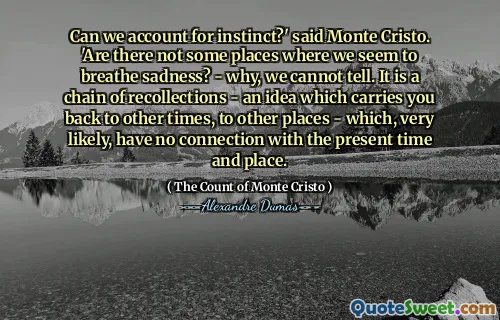There is neither happiness nor misery in this world, there is only a comparison between one state and another. Nothing more. Only one who has experienced boundless evil can experience boundless happiness. One must have wished to die to understand how nice life is.
The quote from "The Count of Monte Cristo" expresses the idea that emotions like happiness and misery are not absolute states but rather relative experiences. It suggests that one's understanding of joy is deeply tied to experiencing suffering. Without the contrast of despair, the value of happiness is diminished, as one cannot fully appreciate life without having faced its darker moments.
This perspective emphasizes the necessity of duality in human experience, where extreme emotions illuminate each other. The author, Alexandre Dumas, implies that a true appreciation of life comes from a deep understanding of its struggles. Thus, moments of joy are heightened by the awareness of the challenges endured.






